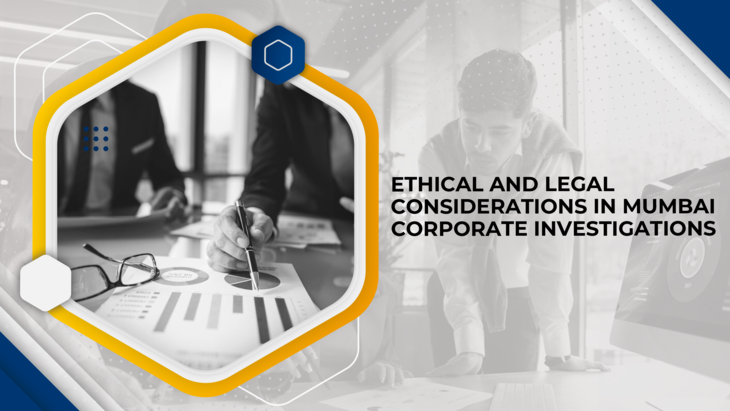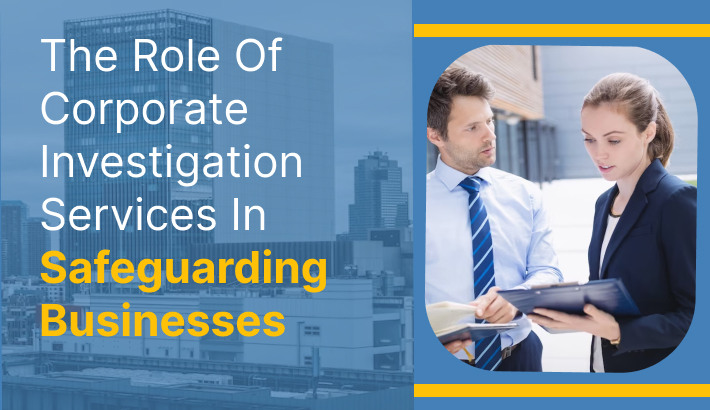In today’s fast-paced business environment, informed decision-making is crucial for success, particularly when engaging in mergers, acquisitions, or partnerships. Corporate due diligence serves as a vital process that helps businesses navigate potential risks and uncover valuable insights about prospective partners or acquisitions. This article explores the importance of corporate due diligence services in India, the various types involved, the key processes, and best practices for conducting effective due diligence.
Understanding Corporate Due Diligence
Corporate due diligence refers to the comprehensive appraisal of a business or its assets before finalizing a transaction. It typically involves reviewing financial records, operational processes, legal compliance, and other critical factors to assess the viability and risks associated with a deal. In India, where the market is diverse and regulations are complex, due diligence becomes even more essential.
Importance of Corporate Due Diligence in India
- Risk Mitigation: India’s dynamic business landscape presents various risks, including regulatory compliance, financial stability, and reputational issues. Corporate due diligence helps identify these risks upfront, allowing businesses to make informed decisions or negotiate better terms.
- Regulatory Compliance: India has a robust legal framework governing corporate operations. Due diligence helps ensure compliance with laws and regulations, reducing the likelihood of legal complications post-transaction.
- Financial Health Assessment: Understanding a target company’s financial status is crucial for investors. Due diligence includes a thorough analysis of financial statements, tax liabilities, and cash flow, providing insights into the company’s financial health and performance.
- Operational Insights: Beyond financials, due diligence delves into the operational aspects of a business. This includes evaluating processes, technology, and human resources, enabling businesses to identify synergies and areas for improvement.
- Cultural Fit: For mergers and acquisitions, understanding the corporate culture of the target company is vital. Due diligence allows organizations to assess whether the cultures align, which can significantly influence the success of the integration.
Types of Corporate Due Diligence In India
Due diligence can be categorized into several types, each focusing on specific aspects of the business:
1. Business Due Diligence
This involves assessing the overall operations, market position, and competitive landscape of the target company. It provides insights into the business model, customer base, and growth potential.
2. Financial Due Diligence
This focuses on reviewing the financial health of the company, including historical financial performance, forecasts, and any liabilities. It typically involves analyzing balance sheets, income statements, and cash flow statements.
3. Legal Due Diligence
Legal due diligence assesses the legal standing of the company, including contracts, litigation history, intellectual property rights, and compliance with local laws and regulations. This is critical to avoid any potential legal liabilities.
4. Commercial Due Diligence
This type evaluates the commercial viability of the business by analyzing market conditions, competitive positioning, and customer demand. It helps ascertain whether the target company can sustain its operations and growth.
5. Tax Due Diligence
Tax due diligence involves reviewing the tax compliance status of the company, examining any pending tax liabilities, and understanding the tax implications of the transaction. This is crucial for mitigating future tax risks.
6. Environmental Due Diligence
For industries with significant environmental impact, this type assesses compliance with environmental laws and regulations, identifying any potential liabilities related to environmental issues.
The Due Diligence Process
Conducting corporate due diligence involves a systematic approach:
1. Planning and Preparation
The first step is to define the scope of due diligence based on the type of transaction. This includes identifying key areas of concern, stakeholders involved, and timelines for the process.
2. Data Collection
Gathering relevant information is crucial. This involves obtaining financial statements, contracts, legal documents, and other pertinent data. Engaging with the target company to collect this information can also foster transparency.
3. Analysis and Assessment
Once data is collected, it is analyzed to identify potential risks, liabilities, and opportunities. This stage requires expertise in financial analysis, legal interpretation, and market assessment.
4. Reporting Findings
The findings are compiled into a comprehensive report that outlines key insights, risks identified, and recommendations. This report serves as a foundation for decision-making.
5. Decision-Making
Based on the due diligence findings, stakeholders can make informed decisions regarding the transaction, including negotiation strategies, deal structures, or even walking away if risks are too high.
Best Practices for Effective Due Diligence
To ensure a thorough and effective due diligence process, consider the following best practices:
1. Engage Experts
Due diligence requires specialized knowledge in finance, law, and industry-specific regulations. Engaging experts or consultants can provide invaluable insights and help navigate complex issues.
2. Be Comprehensive
Ensure that the due diligence process covers all critical areas, including financial, legal, operational, and market aspects. A comprehensive approach mitigates the risk of overlooking potential issues.
3. Maintain Confidentiality
Due diligence often involves sensitive information. Establishing confidentiality agreements protects both parties and fosters trust throughout the process.
4. Document Everything
Maintaining detailed records of all findings, communications, and analyses is crucial for future reference and potential legal requirements.
5. Stay Objective
It’s essential to approach due diligence with an objective mindset, focusing on facts rather than assumptions or biases. This ensures accurate assessments and better decision-making.
Conclusion
In a world where business transactions are often fraught with uncertainty, conducting thorough corporate due diligence is paramount. Spy Detective Agency – a pioneer detective agency in Delhi, India brings valuable expertise and resources to the table, assisting businesses in navigating the complexities of due diligence with precision. By leveraging their investigative skills and local market knowledge, they can uncover critical insights into potential partners or acquisitions, ensuring that organizations make informed decisions.
Through comprehensive assessments of financial health, legal standing, and operational viability, Spy Detective Agency helps clients mitigate risks and uncover hidden opportunities. Their methodical approach to gathering and analyzing information empowers businesses to approach transactions with confidence, ultimately contributing to more successful outcomes. By partnering with professionals who specialize in due diligence, companies can focus on their strategic goals, knowing they have a reliable ally in safeguarding their interests.











